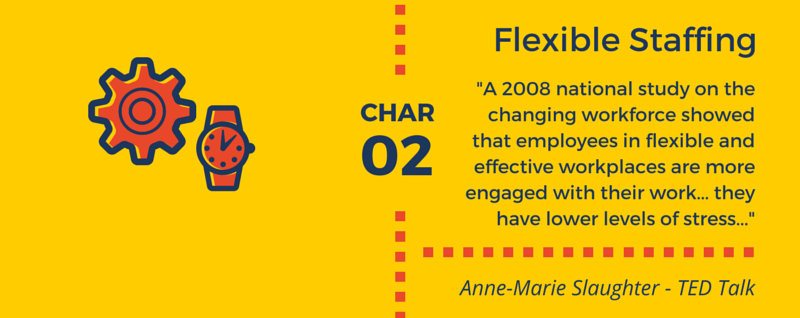
Anne-Marie Slaughter, former Director of Policy Planning for the US Department of State, gave a TED talk in 2013 where she discussed work-life balance---how it helps employers and employees, and how it can facilitate gender equality in the work place.
Her talk offered an excellent perspective on an important societal issue, but it also outlined the beneficial effects of giving employees flexible schedules.
In cardiovascular care, flexible scheduling is not impossible or unreasonable. The importance of work-life balance and its effects on everything from quality of care to the bottom line make flexible staffing the second of our 5 essential characteristics of highly effective cardiovascular teams.
Slaughter discussed work-life balance in terms of family:
Workers who have a reason to get home to care for their children or their family members are more focused, more efficient, more results-focused. And caregiving itself develops patience -- a lot of patience -- and empathy, creativity, resilience, adaptability. (Slaughter, 2013)
When health care professionals can work flexibly and spend more quality time with their families, they become more efficient, more empathetic care givers. Flexible scheduling also increases job satisfaction, which many studies have identified as having a positive effect on quality care provision.
University of Wisconsin's "What Works for Health" website lists expected beneficial outcomes of flexible scheduling---reduced absenteeism, and increased productivity--- among benefits to the employees themselves---improved mental health, improved health outcomes, improved work-life balance, etc.
The Corporate Executive Board reported in 2009 that "work-life balance now ranks as one of the most important workplace attributes---second only to compensation." And what is the most in-demand work-life practice for organizations? Flexible scheduling. "More than 60% of the employees polled in the CEB study identified flexible schedules as the most important work-life practice their employer could provide."
That translates to higher quality recruiting at lower cost. And flexible scheduling provides cost-savings in other areas as well, such as reduced overtime and reduced turnover.
A 2012 study of employers showed that deep, flexible practices actually lowered operating costs and increased adaptability in the global service economy. (Slaughter, 2013)
Is that still true in health care? Is flexible scheduling even possible given the unpredictable volumes in cardiovascular care? Yes and yes.
In 2013 the Cardiovascular Roundtable responded to questions regarding scheduling given unpredictable volumes. In multiple cases, flexing labs and allowing staff to choose their shifts reduced overtime, cut costs, and improved morale.
What's your experience? Do you use flexible staffing? Does it seem possible for your organization?